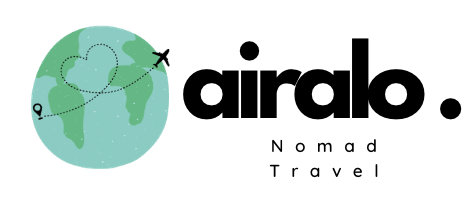Italy, known for its art, culture, and delicious cuisine, has opened its doors to remote workers and digital nomads with its new digital nomad visa. This visa allows you to live and work in Italy while enjoying all the country’s beauty and benefits.
Italy’s digital nomad visa is designed for professionals who can work remotely. It’s a chance to experience the Italian way of life, explore its rich history, and immerse yourself in the local culture. Whether you’re a freelancer, entrepreneur, or remote worker, this visa lets you work from anywhere in Italy, surrounded by its stunning landscapes and vibrant cities.
Understanding Visa Types
Italy offers several visa options for digital nomads, each tailored to different needs and circumstances. Here’s a breakdown of the most relevant visa types:
Type #1: Tourist visa
The Italian tourist visa is an excellent choice for digital nomads seeking a short-term stay in Italy without the need for extensive legal commitments. With this visa, you can enjoy a stay of up to 90 days within a 180-day period in Italy, and there is no requirement to register with local authorities or apply for a residence permit.
- A valid passport with a validity of at least three months beyond your intended stay.
- Documents that explain the reasons for your visit to Italy and the expected duration of your stay.
This tourist visa serves as an ideal option for digital nomads who wish to spend brief periods in Italy while they await the introduction of the official Italian digital nomad visa.
However, if your goal is to establish long-term residence in Italy, it may be worth exploring one of the two available options.
Type #2: Self-employment visa
The self-employment visa is a great opportunity for people who want to live and work in Italy as freelancers or start their own businesses. But there are some important things to know. This visa has limits on how many are available each year, and it’s determined by the “Decreto Flussi” law.
To apply for this visa, you’ll need to provide specific documents and meet certain requirements. The documents you need can depend on whether you want to be a freelancer or start a business in Italy. But here are the general requirements:
- Visa application form.
- Recent passport-size photo.
- Passport valid for at least three months beyond your planned stay.
- Proof of where you’ll stay.
- Payment of application fees (around €116 or $122.57).
- Proof of at least €8,500 or about $8,983.82 in annual income from the previous year.
If you want the self-employment freelancer or business owner visa, you’ll need more documents:
- A “nulla osta” work certificate from the police station.
- A certificate from the Chamber of Commerce that shows you have the resources for your planned business, trade, or craft activity (at least €4,962.36 or about $5,237.23).
- Proof of enough money in Italy to cover these resources.
Suppose you’re interested in the self-employment start-up visa, which is designed for those looking to launch an innovative start-up business in Italy. In that case, you will need to meet additional requirements:
So, these are the main things to know about the self-employment visa in Italy. Make sure you have all the right documents and meet the specific requirements based on your plans in Italy.
Type #3: Passive income visa
The Passive Income (Elective Residence) visa in Italy is primarily designed for retirees seeking long-term stays in the country. However, it’s worth noting that the visa doesn’t specifically require retirement, making it an option to explore for digital nomads as well.
To be eligible for this visa, you need to demonstrate an annual income exceeding €31,000 (~$32,774.44) from sources other than regular employment wages or work-related earnings. This passive income could come from various sources, like rental income from properties you own outside Italy or a pension from a government or another institution.
To apply for the Italian passive income visa, you will need the following:
- Visa application form.
- Recent passport-size photograph.
- Passport with validity extending at least three months beyond the requested visa duration.
- Proof of Accommodation for your entire stay, which can be a signed ownership or rental contract.
- Evidence of substantial and regular financial resources in your name. These funds should come from sources other than traditional employment.
This visa provides an attractive option for those wishing to reside in Italy with a steady stream of passive income, and it is not limited to retirees alone.
While the Italian Ministry of Foreign Affairs and International Cooperation’s official website provides a comprehensive list of the necessary documents and requirements, it’s advisable to reach out to the visa office at the nearest Italian Embassy or consult your local Italian diplomatic mission for specific and up-to-date details. They can provide you with precise guidance regarding the application process and any additional requirements.
Which Italy visa type is best for digital nomads?
There isn’t one simple answer to this, but let’s look at the choices for living and working in Italy as a digital nomad.
The best scenario would be an official digital nomad visa made just for digital nomads. While we wait for that in Italy, there are other visa options to consider, depending on your situation.
If you’re not from the EU and want a short and easy stay in Italy, think about a tourist visa. It lets you stay in Italy for up to 90 days to experience Italian life and culture.
If you have enough passive income and want to live in Italy long-term, the passive income Italian visa is a good option. It lets you live in Italy while depending on your passive income.
If you don’t meet the passive income visa requirements but want a long stay in Italy, check out the self-employment visa options. They’re for people who want to be self-employed or run a business in Italy. These visas can lead to long-term residence while you work on your entrepreneurial goals.
Benefits of the Digital Nomad Visa in Italy
Italy’s digital nomad visa offers a range of benefits for remote workers, freelancers, and entrepreneurs looking to live and work in the country. Here are some of the key advantages of the digital nomad visa in Italy:
Legal permission to work in Italy
With the digital nomad visa, you can work remotely in Italy. This means you can comfortably work from your laptop while enjoying the stunning Italian scenery without having to worry about any legal implications.
Access to high-speed internet
Italy has made significant investments in its internet infrastructure, ensuring that digital nomads can access high-speed internet connections. This is crucial for remote workers who rely on stable and fast internet to carry out their work effectively.
Immersive cultural experience
Italy is renowned for its rich history, art, and culture. By living and working in Italy, you can immerse yourself in this unique cultural experience. From exploring ancient ruins to indulging in authentic Italian cuisine, there is no shortage of cultural treasures.
Breathtaking landscapes
Italy has stunning landscapes, from picturesque coastal towns to rolling countryside and majestic mountains. As a digital nomad in Italy, you can use your flexible work schedule to explore these natural wonders during your free time.
Networking opportunities
Italy is home to a vibrant and diverse community of digital nomads. By living and working in Italy, you have the chance to connect with like-minded individuals, attend networking events, and build valuable professional relationships.
Proximity to other European destinations
Italy’s prime location in Europe makes it a great starting point to explore other European countries. Thanks to its excellent transportation system, you can quickly travel by train or short flight to nearby nations and discover more of Europe.
Italy’s digital nomad visa is a unique opportunity to mix work and exploration while enjoying the country’s rich culture and stunning landscapes. It provides countless options for remote workers, freelancers, and entrepreneurs looking for a change of scenery.
Cost of Living as a Digital Nomad in Italy
While Italy offers an incredible experience for digital nomads, it’s essential to consider the cost of living. The cost of living can vary depending on the region and city you choose to live in.
In general, major cities like Rome, Milan, and Florence tend to have higher living costs compared to smaller towns or rural areas. Transportation, Accommodation, and dining out can be more expensive in these urban centers. However, they also offer various amenities, cultural activities, and networking opportunities.
On the other hand, living in smaller towns or rural areas can be more affordable, with lower rental prices and a slower pace of life. These areas provide the opportunity to immerse yourself in the authentic Italian lifestyle and connect with the local community.
Conclusion
Italy’s digital nomad visa lets you experience Italy’s beauty, culture, and history while keeping your career. Whether you work from Rome’s bustling streets, Tuscany’s picturesque countryside, or any other stunning spot, Italy is perfect for remote work and exploration.
With its vibrant cities, stunning landscapes, and renowned art and cuisine, Italy has something for every digital nomad. Live the Dolce Vita and make Italy your office and playground.
So, if you dream of working remotely while enjoying Italy’s beauty, consider the digital nomad visa. Find the perfect work-life balance in one of the world’s most captivating countries. Italy is waiting to inspire and enrich your digital nomad journey.





